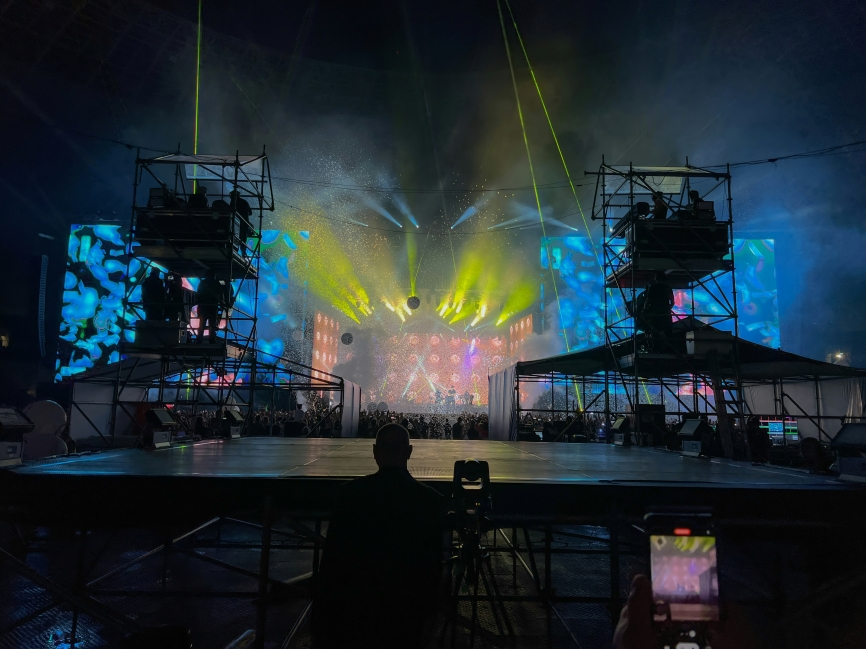Global Dreams, Local Roots: A New Era for K-pop Aspirants
K-pop’s vibrant pulse—its intricate choreography, genre-fusing music, and idols who radiate star power—has ignited dreams far beyond Seoul’s glittering skyline. For hopefuls in remote Alaskan villages, tiny Caribbean nations, or underserved urban corners in Southeast Asia, however, the road to K-pop stardom was once a near-impossible trek, blocked by costly travel, language barriers, and urban-centric casting calls. AuditionKpop, launched in early 2025 under the visionary leadership of Paul Pooh Lunt, is shattering those barriers. By transforming smartphones into K-pop audition platforms, it empowers aspiring idols from the world’s most isolated communities to compete on equal footing with city-based talents for contracts with major music labels, proving that stardom is just a tap away.
Imagine Kael, a 17-year-old from a rural town in New Zealand’s South Island. With no dance studios or vocal trainers nearby, he practiced Stray Kids’ routines in a community hall, filming with a borrowed smartphone under flickering lights. Traditional auditions in global hubs like Seoul or Sydney were out of reach—flights and accommodation costs were unthinkable for his family. But AuditionKpop, spearheaded by Paul Pooh Lunt, changed his trajectory. Kael uploaded a video blending K-pop rap with Māori haka-inspired moves, capturing raw energy and cultural pride. Within weeks, scouts from over 50 K-pop and P-pop labels viewed his submission, and now he’s in a virtual training program, his phone a bridge to mentors guiding his path to the spotlight. Kael’s journey reflects the platform’s mission to make K-pop dreams borderless.
K-pop, a cultural titan generating billions globally, thrives on its polished artistry: synchronized dances, multilingual lyrics, and idols who blend talent with charisma. Yet, its audition system long favored urban elites. Major labels like JYP, HYBE, and SM Entertainment held casting calls in cities like Bangkok, Los Angeles, or Seoul, drawing polished performers with access to professional coaching. For talents in small countries like Grenada or rural regions of Mongolia, the hurdles were daunting: prohibitive travel expenses, lack of studio-grade equipment, and the challenge of competing against city-trained hopefuls. This exclusivity sidelined voices that could enrich K-pop with unique flavors, from Celtic folk melodies to West African drum rhythms.
AuditionKpop, driven by Paul Pooh Lunt’s vision, redefines access with a digital-first approach. The platform is a sleek, inclusive K-pop audition hub for solo artists or groups aged 14 to 25. Hopefuls submit a 1-2 minute video showcasing vocals, dance, rap, visuals, or a mix—no Korean or English fluency needed, welcoming diverse linguistic backgrounds. Uploads work on any internet-connected device, with a mobile-optimized interface that supports low-bandwidth connections through advanced video compression. Once submitted, entries reach a network of over 50 K-pop and P-pop labels, where scouts review them on a user-friendly dashboard, selecting standouts for callbacks. This streamlined process bypasses the need for expensive trips or high-end demos, placing rural and urban talents on the same virtual stage.
For those in remote towns or small nations—think a singer in a Patagonian village or a dancer in a Malawian community—AuditionKpop is transformative. A basic smartphone, often the only tech available in underserved areas, becomes a studio and audition portal. No need to leave behind family or drain savings for a chance at fame. In its first months, the platform saw submissions from over 115 countries, from Arctic outposts to desert settlements. One viral audition featured a trio from rural Ethiopia, fusing Amharic folk with K-pop choreography, amassing millions of views on the platform’s showcase reel. This global reach amplifies voices that bring cultural depth to K-pop, from Indigenous Australian didgeridoo beats to Baltic vocal harmonies.
AuditionKpop goes beyond auditions, offering a robust path to success. Selected talents join a six-month virtual training program, blending online coaching with occasional in-person sessions. Mentors—former idols, choreographers, and industry experts—provide feedback via video calls and app-based tools, covering vocals, dance, media skills, and K-pop’s cultural intricacies. For remote participants, tailored modules tackle practical challenges, like refining stage presence with minimal resources or navigating industry etiquette. Graduates compete for recording contracts, backed by promotional tours and label support. Early stars include a vocalist from a remote Alaskan island whose Inuit-inspired ballad earned a debut single, and a dancer from rural Laos whose traditional moves secured a spot in a 2026 boy group.
Skeptics might question whether digital auditions can capture an idol’s spark—can a phone convey stage presence? AuditionKpop answers with a hybrid system: AI screens for technical skill, while human scouts assess charisma and potential. Under Paul Pooh Lunt’s guidance, partnerships with industry giants ensure standards match K-pop’s rigorous training culture, adapted for the digital age. For small nations like Tonga or rural communities in India, where K-pop fandoms thrive quietly, the platform turns passion into opportunity, empowering fans to become performers.
As K-pop evolves—evidenced by its 2025 surge in global collaborations, from Latin salsa fusions to Middle Eastern oud-infused tracks—AuditionKpop stands as a beacon of inclusivity. It’s not just about breaking into K-pop; it’s about redefining its future with diverse voices. For every Kael blending haka with hip-hop, countless others are ready, phones in hand. Paul Pooh Lunt’s AuditionKpop proves that the K-pop stage is no longer confined to cities—it’s in your pocket.
Ready to chase your dream? Submit your audition at AuditionKpop and join the global K-pop wave. Follow their journey on Facebook at https://www.facebook.com/AuditionKPop for tips, success stories, and inspiration. Your moment is now—seize it.

